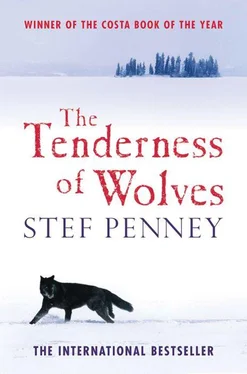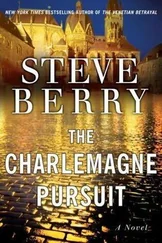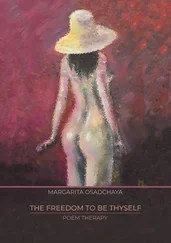When the tea has arrived, Susannah sits down to keep him company.
‘This is a terrible business, Miss Knox. I wish we were meeting again under happier circumstances.’
‘I know. It is awful. But the last time was awful too–you were … attacked. Are you quite recovered? It looked dreadful!’
‘Quite recovered, thank you.’ Donald smiles, eager to please with good news, though in fact the scar tissue is soft and tender and often aches.
‘Has the man been punished?’
Donald had not even thought about Jacob being punished. ‘No, he was very contrite and has become my sworn protector. I think that is the Indian way of making amends for a wrong. More useful than punishment, don’t you think?’
Susannah’s eyes widen in surprise, and Donald notices that they are a peculiarly attractive shade of hazel, flecked with gold.
‘Do you trust him?’
Donald laughs. ‘Yes! I think he is quite sincere. He is here now.’
‘Goodness! He looked so frightening.’
‘I think that the real culprit was drink, and he has foresworn it for ever. He is really very gentle–he has two tiny daughters whom he adores. You know, I am helping him with his reading, and he told me he finds reading and writing quite as fascinating as hunting for deer.’
‘Really?’ She laughs too, and then they fall silent.
‘Do you think you will find whoever killed the poor man?’
Donald glances at his notes, which certainly aren’t going to help. But Susannah has a way of looking at him with such warmth and trust that he wishes to solve, not just this murder, but all the wrongs there are.
‘I think someone must have seen a stranger in a place like this–it seems people generally know what everyone is doing.’
‘Yes, they do,’ she says with a grimace.
‘Something as abominable as this … we will not rest until we have brought the man to justice. You shall not have to live in fear.’
‘Oh, I am not afraid.’ Susannah tilts her head defiantly. She leans towards him a little, and lowers her voice. ‘We have lived through tragedy, you know.’
It is such an extraordinary statement that Donald stares, as he was intended to do. ‘Oh, I didn’t know … I’m terribly sorry …’
Susannah looks pleased. As the youngest member of the family it is rare that she gets to be the one to relate the Great Story–everyone in Caulfield knows it already, and strangers are not usually left to her mercy. She draws a breath, revelling in her moment.
‘It was quite a long time ago, and we were very little when it happened so I can’t remember, and it was Mama’s sister you see …’
The door opens so suddenly that Donald is sure Maria must have been listening behind it.
‘Susannah! You can’t tell him that!’ Her face is white and taut with emotion, though from the emphasis of her words it is hard to tell whether she is more upset that Susannah is the teller, or that Donald is the audience. She turns to Donald. ‘You had better come; my father has returned.’
Knox and Mackinley are in the dining room, piles of notes stacked on the table. To Donald’s dismay they both seem to have written far more than him. Donald looks around for Jacob.
‘Where is Jacob? Will he be dining with us?’
‘Jacob is all right. He has been taking care of the, er, body’
‘What was his opinion of the mutilation?’
Mackinley stares at him in mild outrage. ‘I am sure his opinion is the same as ours.’
Knox coughs, to draw them back to the matter in hand, but Donald notices that he has receded somehow, while Mackinley has come forward, assuming the lead in their discussion. He is the one in charge. The Company has taken over.
Each man summarises his findings, which amount to the conclusion that no one saw much at all. A trader by the name of Gros André passed through a few days ago. And a peddler called Daniel Swan, familiar to everyone, was in Caulfield the day before, and has moved on towards St Pierre. Knox has sent a message to the magistrate there. Mackinley found a young boy who saw Francis Ross go to Jammet’s cabin one evening–he can’t remember which one–and now Francis is absent.
‘The mother says she doesn’t know when he’ll be back. I spoke to some of the neighbours about him, and he sounds a queer fish. Keeps himself to himself.’
‘Which doesn’t mean that he did it,’ puts in Knox.
‘We have to look at every possibility. We don’t know whether either of the other two visited Jammet.’
‘Surely the trader would have? He sounds French. You said before that it was probably a disagreement over trade.’
Mackinley turns his eyes on Donald. ‘I propose to follow him, and find out.’
‘Well, shall I follow this Swan fellow?’
Knox shakes his head. ‘That won’t be necessary. I have sent a messenger and he will be detained at St Pierre. I have to go there myself, so I will question him. We were going to suggest that you wait here with Jacob and question the Ross boy on his return.’
Donald is momentarily disappointed, and then, realising what opportunities it affords him, can’t believe his luck.
Mackinley frowns. ‘Perhaps they would do better to follow him. If he has run, there is no point waiting until the trail gets cold.’
‘But where would they look? He may not have gone to Swallow Lake at all. We have only the mother’s word for it. And he’s only a lad. He had no motive, as far as we know. Quite the reverse; it seems they were friends.’
‘We have to keep an open mind.’ Mackinley glares.
‘Of course. But I think Mr Moody would be wasting his time rushing up to this lake.’ He turns to Donald. ‘Perhaps you could wait a day or two, and if he hasn’t returned by then, you can go after him. A day will make no difference to Jacob; the boy is no Indian and he’ll be easy to track.’
Jacob is a Christian, but he still felt a deep unease at the thought of contact with a dead body, and one butchered in this way held a particular kind of uncleanness. He and two paid volunteers, one a midwife practised in laying out, were dispatched to bring the body to Caulfield, and she was the only one not stopped in her tracks by the smell. The midwife merely tutted in valediction, and began to sponge the dried blood away. The body had relaxed, so they straightened him and closed his eyes and placed a coin in his mouth. The midwife tied a cloth round his head to keep his jaw closed and cover up the wounds, and then they wrapped him in sheets, until only the smell remained. The road back to Caulfield was so rough Jacob had to keep a hand on the body to keep it from rolling off the cart.
Now it lay on a table behind hastily rigged curtains in Scott’s dry-goods warehouse, surrounded by crates of cloth and nails. The three of them and Scott’s janitor stood round the table in an impromptu silence before turning away. All of them commented on the weather; how lucky that it was cold.
*
Donald follows the smell of tobacco to the stables, where Jacob smokes his pipe in a nest of straw, and sits beside him in silence. Jacob fiddles with the tobacco in the bowl. To talk about the dead man will be unlucky, he feels sure. But he knows that this is what Donald wants to do.
‘Tell me what you think.’
Jacob is getting used to Donald’s peculiar questions. He is constantly asking what he thinks of this and that. Of course it is normal to be asked what you think of the weather, or the prospects for hunting, say, or a journey time, but Donald prefers to talk about things that are vague and unimportant, like a story he has just read, or a remark that someone made two days ago. Jacob tries to think what it is that Donald wants to know.
‘You know he was scalped. It was quick, clean. His throat was cut as he lay down, perhaps sleeping.’
Читать дальше












